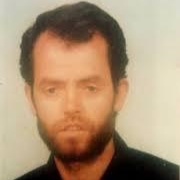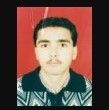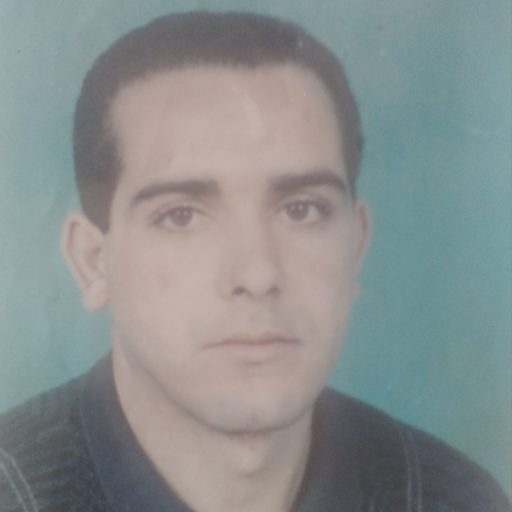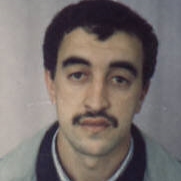
Lakhdar Bouzenia
Date of arrest: 1993-05-24
Forces responsible: Gendarmerie
Summary
Lakhdar Bouzenia was a teacher of Arabic literature at the high school of Sidi Abdelaziz. A political figure in the Islamic Salvation Front (FIS), he had been elected on the FIS list for the Chefka constituency in the first round of the legislative elections, held on December 26, 1991. On May 24, 1993, he was arrested at a roadblock set up by the National Gendarmerie in the town of El Ancer, in Jijel wilaya. According to his mother, another of her sons, Hussein Bouzenia, who had been elected president of the communal people’s assembly (mayor) of the town of Chefka on the FIS list, was also arrested during this period, as were dozens of other FIS militants.
Following his arrest, Lakhdar Bouzenia was held incommunicado at the headquarters of the Jijel military sector for approximately three weeks, before being transferred to the Territorial Centre for Research and Investigation (CTRI) in Constantine, run by the Intelligence and Security Department (DRS) of the People’s National Army. He was then detained by several brigades of the gendarmerie in turn, including the El Ancer, El Milia, Settara and El Aouana brigades.
He was not seen again until one month after his arrest, when he appeared, without a lawyer, before the investigating judge at El Milia Court; during this court appearance, he had difficulty remaining standing. He was scarcely recognisable owing to the torture inflicted during his detention by DRS and the gendarmerie, which included crucifixion (there were visible wounds on his hands and feet) and sexual abuse. Despite these visible signs of ill-treatment, the judge refused to have him examined by a doctor. During the hearing, he was charged with “formation and membership of a terrorist organisation”, “breach of State security”, “dissemination of seditious publications”, and other similar offences. No evidence was entered in the case file.
Following his appearance before the investigating judge, Lakhdar Bouzenia was transferred to the Jijel detention centre, where he was held in solitary confinement until October 27, 1993, and also endured ill-treatment and acts of torture. While he was detained, his family was able to visit him several times. During one of these visits, on August 8, 1993, one of his brothers observed signs of the torture to which Lakhdar Bouzenia had been subjected. His brother Hussein Bouzenia, who had been arrested during the same period and held in the same detention centre in Jijel until his transfer to another centre on October 27, 1993, learned that his brother had reportedly been taken from the prison on several occasions to be interrogated by DRS agents in their offices and that he had probably been tortured there.
Lakhdar Bouzenia was to be transferred to Constantine prison on October 27, 1993, to await his trial, which was scheduled to start on November 17, 1993. The prison van, which was escorted by gendarmerie vehicles and was carrying only Lakhdar Bouzenia, left the Jijel detention centre at around 11 a.m. but never arrived at its destination. The administration of Constantine prison denied having taken custody of, or having admitted, Lakhdar Bouzenia. His family fears that he was arbitrarily executed during the transfer. On October 31, 1993, the victim’s family learned through the press that 11 notorious terrorists, including one Lakhdar Bouzenia, had been eliminated in Taskift on October 27, 1993, by the Algerian security forces. It is precisely on the road linking Jijel and Constantine that the town of Taskift is located. On November 17, 1993, the trial of the victim and his brother, Hussein Bouzenia, began as scheduled. After a moment of confusion due to the absence of Lakhdar Bouzenia, who was to have appeared as a detained defendant, the judge announced the discontinuation of the criminal proceedings against him on account of his death.
Steps taken
November 1993: Lakhdar Bouzenia’s family reports his disappearance to the Prosecutor before the Jijel Court, to no avail.
After November 1993: Lakhdar Bouzenia’s mother tries, on several occasions, to lodge a complaint of disappearance with the El Kennar gendarmerie, but the officers refuse to register the complaint. She visits the El Milia hospital morgue and the communal authorities to seek information about the identity of the Lakhdar Bouzenia whose death has been reported in the press and to obtain a death certificate. These efforts remain in vain.
December 1996: Lakhdar Bouzenia’s wife petitions the El Milia Public Prosecutor in order to obtain a death certificate. The application for a judicial declaration of presumed death is registered with El Milia Court and a death certificate is issued after the appropriate procedure had taken place, but no copy of the court judgement is provided to the victim’s wife.
February 24, 2007: Lakhdar Bouzenia’s mother petitions the Public Prosecutor at Taher Court for a document detailing the enquiries made into her son’s disappearance.
November 2008: His mother is summoned by the Public Prosecutor for “a briefing with the complainant”. During the hearing, the Public Prosecutor reminds her that Lakhdar Bouzenia has been accused of terrorism and that numerous charges are pending against him. He denies that Lakhdar Bouzenia has disappeared and maintains that he has been transferred to Constantine prison as planned on October 27, 1993. The Public Prosecutor also refuses to issue a certificate of disappearance or to open an investigation into the victim’s disappearance, despite his mother’s requests.
January 8, 2010: Having exhausted all domestic remedies, Lakhdar Bouzenia’s mother seizes the UN Human Rights Committee.
Decision of the Human Rights Committee
Right to life; prohibition of torture and cruel, inhuman or degrading treatment (including in relation to the author); right to liberty and security of person; respect for the inherent dignity of the human person; recognition as a person before the law and right to an effective remedy (including in relation to the author); protection of the family.
The State party must provide the author and her family with an effective remedy, including by: (a) conducting a thorough and effective investigation into the disappearance of Lakhdar Bouzenia; (b) providing the author and her family with detailed information about the results of its investigation; (c) releasing him immediately if he is still being detained incommunicado; (d) in the event that Lakhdar Bouzenia is deceased, handing over his remains to his family; (e) prosecuting, trying and punishing those responsible for the violations committed; and (f) providing adequate compensation to the author for the violations suffered and to Lakhdar Bouzenia, if he is still alive. Notwithstanding the terms of Ordinance No. 06-01, the State party should ensure that it does not impede enjoyment of the right to an effective remedy for crimes such as torture, extrajudicial killings and enforced disappearances. The State party is also under an obligation to prevent similar violations in the future.




